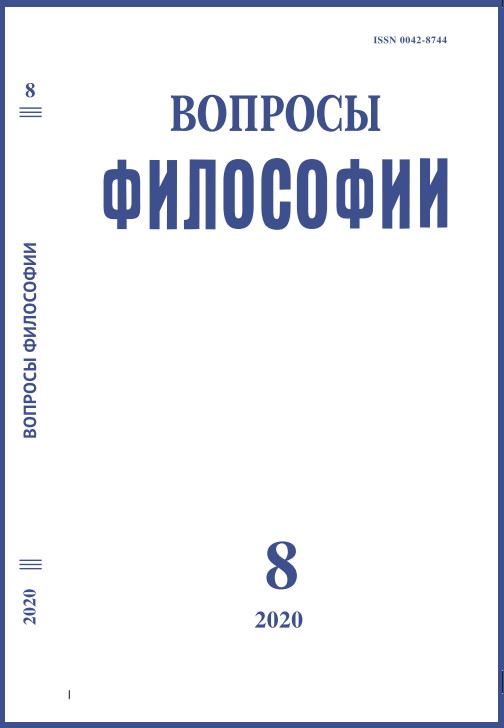The Great Victory and the Soviet People: Anthropological Analysis
DOI:
https://doi.org/10.21146/0042-8744-2020-8-5-19Keywords:
Great Patriotic war, Soviet people, patriotism, nationalities, sufferings and losses, evacuation and resettlement, collaborationism, propaganda, a feeling of hateAbstract
This is a philosophical-anthropological analysis of the existential aspects of the victory of the Soviet people in the Great Patriotic War of 1941‒1945. What were the main factors for mobilization and consolidation of citizens of different nationalities living a difficult life under Stalin’s regime? Among these factors are: a sense of the real danger to physical existence for many people and abandoning of historical statehood, including Soviet ethnoterritorial autonomies; belief in the superiority of the existing social system as a result of mental indoctrination and of everyday practices of “soviet life”; the coercive character of mobilization and disciplining people in a front-line, an evacuation, etc. The important factors were the belief in the “mission of justice” and inevitable victory, an appeal to the past of Russian history, the defense of the Motherland, as well as nurturing from above and on a grass root level a feeling of hate towards German fascists. The manifestations of collaboration and cases of resistance to the Red Army had a limited character and its ethnic parameters expressed mainly in recently occupied territories. The Great Victory became a key factor of pan-Russian (Rossian) national identity, one of the pillars for Russia’s patriotism. It established a concept of a cross-ethnic entity “the Soviet people” as a forerunner for a concept of civic Rossian nation.

